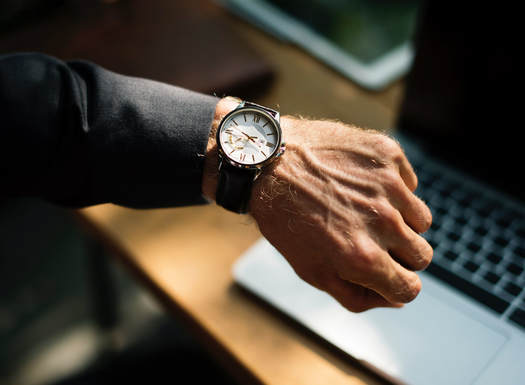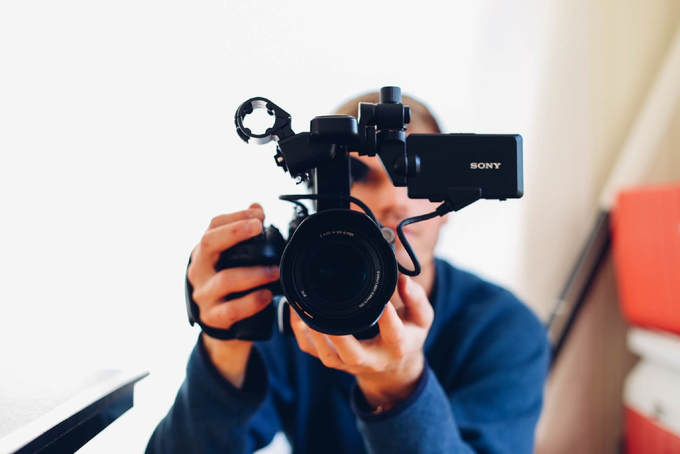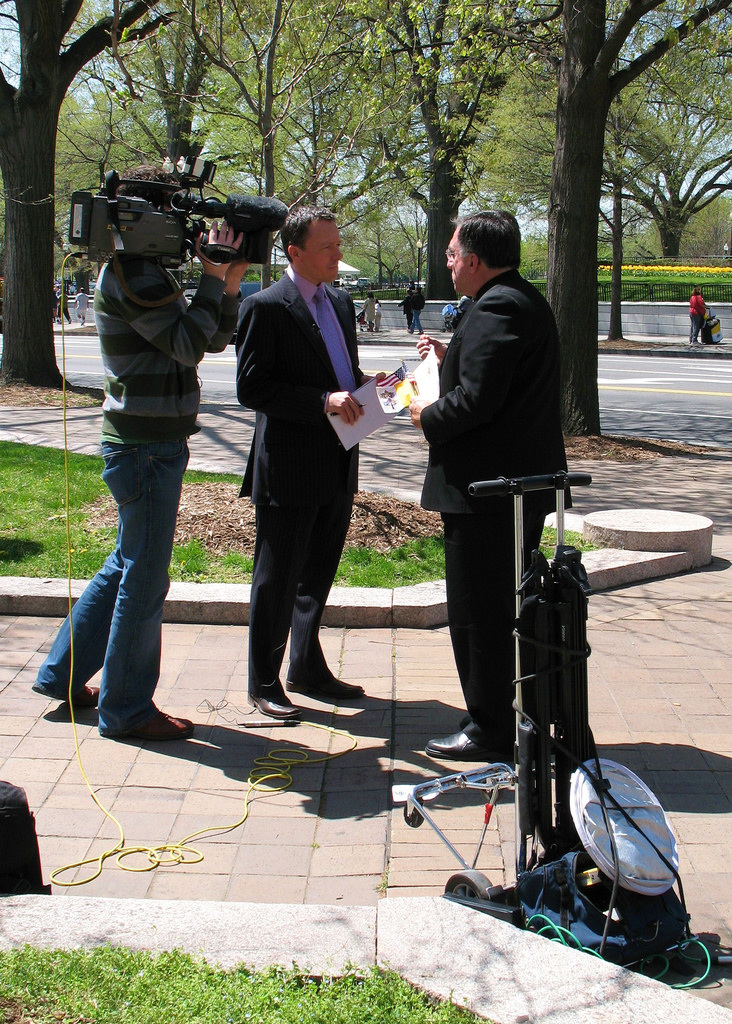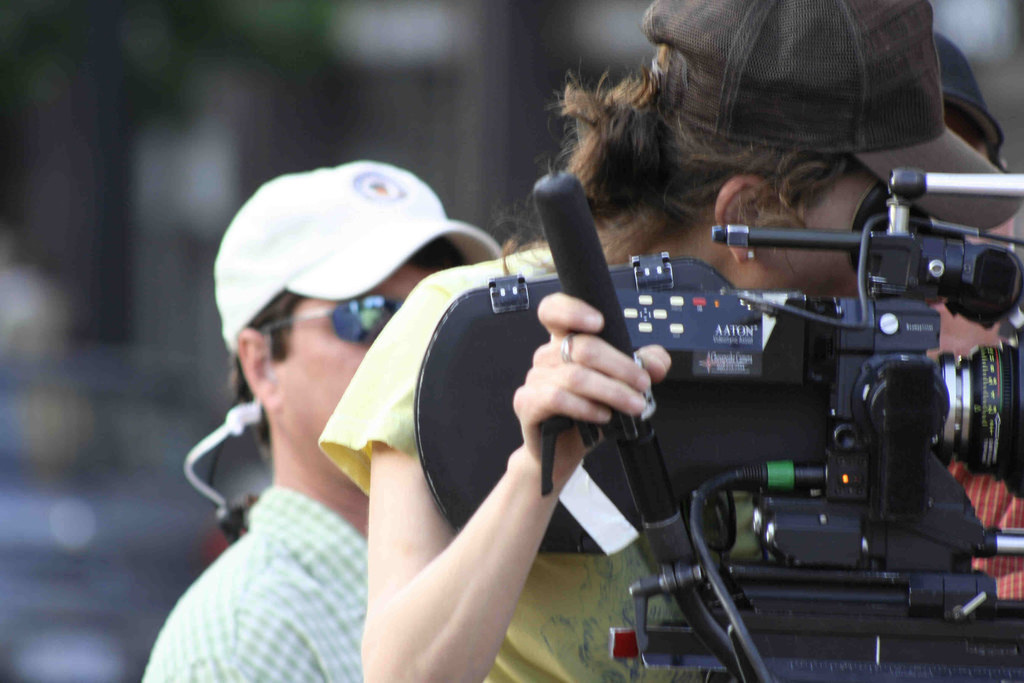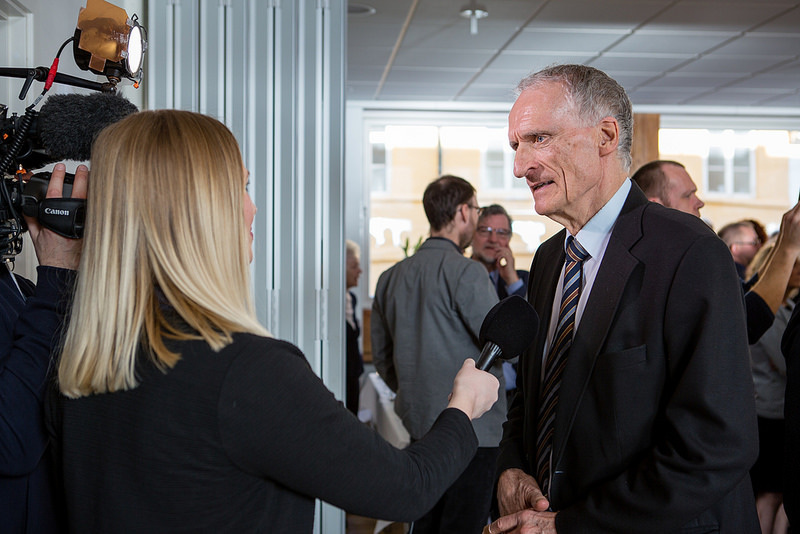|
Timeliness: For reporters, it’s one of the most important elements of a story. It can determine whether your big announcement has five journalists writing about it or none. But what is timeliness exactly, and how should you utilize it in your PR strategy?
According to dictionary.com, to be “timely” is to be “occurring at a suitable time; seasonable; opportune; well-timed.” In the media world, a timely story has some sort of “hook” that makes it relevant to the day’s news and events. Timeliness answers the question “Why am I hearing about this now?” for the public.
0 Comments
This is the final of a three-part series on how to conduct a successful interview with the media. Read previous posts about understanding the media and preparing for an interview.
Now that you’ve done your research and prepared your talking points, it’s time for the big event! Follow our top ten pieces of advice below, and you’ll be well on your way to being an interview pro: This is part two in a three-part series on how to conduct a successful interview with the media. Read the previous post about understanding the media here.
One of the easiest ways you can make sure you have a successful interview is to adequately prepare. Below are our top pieces of advice to help you prepare for an interview. Know what to expect: Conduct some research yourself: Has the reporter written on this topic before? What angle did they take? This might give you a better sense of what to expect during your interview. You can also ask the reporter what types of questions will be asked to get a general sense (they probably won’t give you specific questions). Make sure you’re up on current events in your field so you're less likely to be caught off-guard by a question. This is part one in a three-part series on how to conduct a successful interview with the media.
Being interviewed by the media can be nerve-wracking, no matter how many times you’ve done it. However, interviews don’t have to be painful experiences; with the right amount of understanding and preparation, anyone can make it through an interview like a pro. The best way to ensure you start off on the right foot is to understand the media, so you better know what to expect. Before your interview, consider the following points: Anyone who has spent time in public relations would agree: The industry is built around relationships. Whether it’s with clients, journalists, politicians, you name it-- forming connections is the bedrock of what PR is all about.
Although cell phones and email make it easier than ever to keep in contact with clients, it’s important to remember these strategies should be used to compliment relationship-building efforts, not as a substitute. Overly relying on email or texting also has its hazards. For example, consider the oft-cited fact from a 1970s study that only about 7 percent of communication is verbal; the rest is from body language and tone. When communicating solely through email, it can be easy for intended message to become misconstrued. Well-intentioned messages can come across as cold and impersonal. If your client seems distant, pick up the phone: Perhaps they have been reading your emails differently than you intended. Another hazard of email reliance is that a simple task could be stretched out for days. People get countless emails every day: Waiting for email approval on a time-sensitive assignment can cause you to miss deadlines. More often than not, picking up the phone or meeting in person to hash things out is faster and more efficient. Here at Mack Communications, we strongly believe in taking clients out for lunch or coffee. Taking time out of your day to meet with a client shows them that you think they are important. It’s also simply a good way to get to know someone as a person, and pick up on better ways to approach your work together. Remember: Clients, journalists, legislators are all people. Give them a ring! With today’s endless news cycle, it’s more important than ever to respond to crises promptly and directly. That’s one reason why having a crisis communications plan in your back pocket is so important. It’s good to have facets of your plan memorized however, just in case you get caught off-guard by a particularly persistent reporter.
Although it’s best to always answer as honestly and directly as you can, keeping these five questions in mind may help you have more confidence in reassuring the public. 1- What happened? Mack advice: Only tell what you know, and avoid speculation. 2- Why did [problem] happen? Mack advice: Be willing to admit fault, but avoid pinning blame on anyone/department in particular. Making guesses can hurt the reputation of parties in the short run that weren’t involved at all. 3- Can this problem happen again? How do you know? Mack advice: Be honest. Reassure the public that you’re doing everything to solve the current issue. 4- What are you doing to solve the problem? Mack advice: Again, honesty is key. People want to see companies take action after a crisis, so give tangible examples of what your employees are doing to solve the problem. 5- Who else can we talk to and where can we receive updates? Mack advice: It’s important to have a website available for crisis situations that can provide updates to the public. Be sure you can direct people there if asked. We began one of our recent media training seminars by asking the attendees to imagine that just outside the door were a reporter and camera crew from one of the local TV stations ready to interview them. How would they feel?
Most agreed the butterflies were already fluttering. One person asked if there was an exit in the back of the room. Many of us have such a reaction when it comes to facing the media. A reporter with a note pad, microphone and camera is intimidating. Facing a press conference with multiple cameras and microphones can at first seem like a nightmare. So, how to remain confident in front of the media?  One of the best ways to turn off a reporter to your story is with what at least appears to be a self-serving press release. If you're prone to brag, you might think again about how your release or statement looks through the eyes of someone who has to write a legitimate news story. There are three keys to keep in mind. Great media relations is really hard work. It's where the term "earned media" gets its name. And while technology is making it easier and easier to get your press release into the hands of reporters and editors, it's also much tougher to get them to pay attention.
Don't gloss over that last point. It's really tough to get the media to pay attention. So, how can you improve your odds? Answering questions from reporters can be brutal. The questions can be sharp and direct, putting you on the defensive. You need your own defensive measures to stay in control of the interview.
One of the easiest to spot is the false premise. The question that's being asked is phrased in such a way that it may be impossible to answer and still get your point across. The best move to make is to rephrase the question. "What I think you're really asking..." you might say. Or, "What I think the real issue is...." By rephrasing the question, you answer the question you'd like to answer rather than the one the reporter asked. |
tags
All
Archives
March 2019
|
Photos from Meet the Media Guru, Joseph.Morris, BoldContent, MDGovpics, Grzegorz Łobiński, Mr Moss, North Charleston, ITU Pictures, wistechcolleges, .v1ctor Casale., www.audio-luci-store.it, katielips, editor64, NeighborLink Fort Wayne, AMagill, timsackton, MyFWCmedia, Matt J Newman, Mr.TinDC, Skley, mikecogh, othompsonski, wayne's eye view, Elvert Barnes, woodleywonderworks, North Charleston, MoBikeFed, flossyflotsam, North Charleston, NYCDOT, US Mission Geneva, jjandames, aalborgstift, BurnAway, A. Germain, North Charleston, NCDOTcommunications, IAEA Imagebank, The Chapman Cultural Center, hitsnooze, Wiertz Sébastien, charliekwalker, cliff1066™, TheeErin, woodleywonderworks, dane brian, Aramil Liadon, 2010 World Wheelchair Basketball Championships, Ty Nigh, freddthompson, Nadia Szopinska, west.m, stormwarning., Bright Meadow, Giorgio Montersino, Chris Erwin, Aplomb, jfingas, joce01_y, Massachusetts Dept. of Environmental Protection, Kevin Walter, Andrew Feinberg, Yan Arief, kellypretzer, Korean Resource Center 민족학교, veDro - l'Italia al futuro, crdotx, US Mission Geneva, Joe Shlabotnik, esocialmediashop, Stephen Cummings, CarbonNYC, sidewalk flying, MoBikeFed, marksdk, Marco Raaphorst, Saleel Velankar, adactio, edkohler, World Economic Forum, USACE Europe District, stereogab, Florin Rosoga, MikeSchinkel

